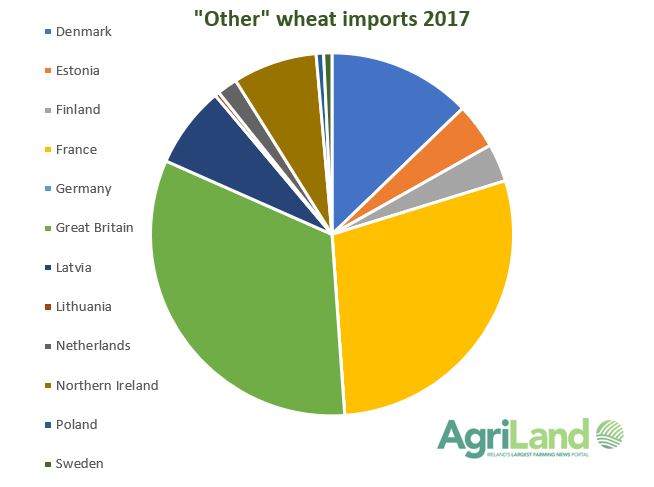The amount of wheat imported into this country in 2018 increased by a massive 40% from the year before.
Earlier this morning AgriLand published data on barley and maize imports into this country.
According to data from the Central Statistics Office (CSO), 427,751t of wheat (including spelt and meslin, unmilled total) were imported into the Republic of Ireland last year. This figure does not include wheat for milling.
It should be noted that the majority of wheat imported for animal feed falls under the category entitled – “other” wheat (including spelt) and meslin, unmilled. Flour of wheat (or meslin) and durum wheat fall under separate categories.
How much did it cost?
Raw data from the CSO estimates the total value of this wheat was €80,279,000 and when calculated this gives an average price of €187.67/t in 2018.
This is almost €20/t more than in 2017 when the average price was €168.32/t.
Where did it come from?
“Other” wheat imports in 2018 came from 14 different countries. France provided the largest proportion of this grain at 21% (90,209t).
Great Britain provided almost 17% (71,381t) of this product. 14% (61,248t) was imported from Bulgaria; 12% (50,896t) from Denmark and 6% (25,561t) from Latvia.
33% (99,781t) of imports of “other” wheat came from Great Britain in 2017. This was followed closely by France at 29% (87,339t), while Denmark imported 13% (38,973t) of the product into this country.
8% (22,886t) and 7% (22,127t) of this wheat came from Northern Ireland and Latvia respectively.
Stay tuned to AgriLand for more on these figures!



